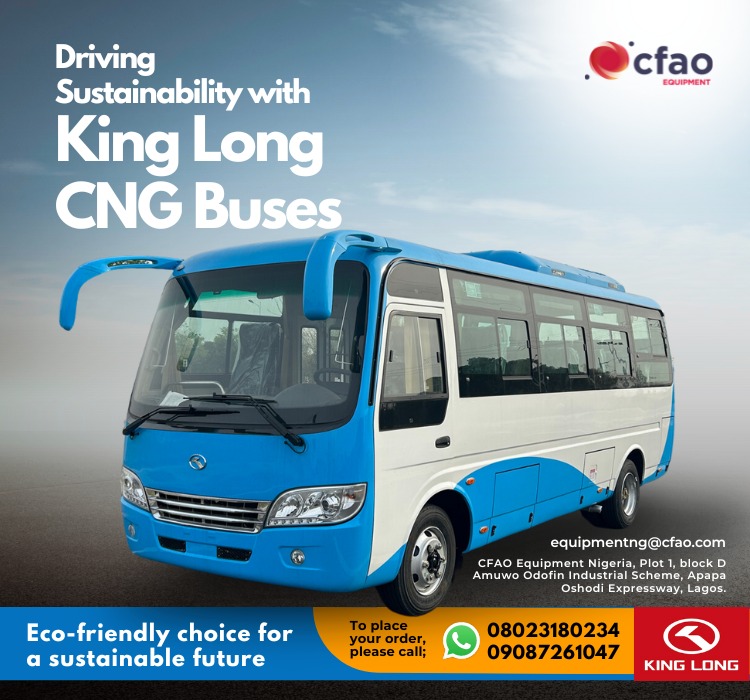… Demand Gov Patronage of Locally Made Vehicles
President Bola Ahmed Tinubu has been urged to facilitate signing into law the National Auto Industry Development Plan (NAIDP) bill.
The stakeholders made the joint call via a Communique issued after the Nigeria Auto Industry Summit (NAISU) organised by the Nigeria Auto Journalists Association (NAJA) in collaboration with the National Automotive Design and Development Council (NADDC) in Lagos and delivered to the Presidency and the National Assembly on Monday, July 8th, 2024.
Described as a key for developing the nation’s economy through the automotive industry, the NAIDP, when signed into law, according to the stakeholders, would provoke OEMs’ confidence in the nation’s economy and erase their fear of policy summersault.
In the 19-paragraph communiqué made available to journalists on Thursday, the automakers, among other medium term measures, stressed that, while passing the NAIDP, a provision backing compulsory patronage of locally assembled/manufactured vehicles by all government functionaries, establishments, agencies and parastatals must be re-enacted and implemented.
The stakeholders charged the nation’s government at all levels to patronize only vehicles made or assembled in Nigeria, as a way of leading by example, saving foreign exchange and securing jobs.
In the same vein, they charged the National Assembly to review the zero differentials between imports of fully built up (FBU) and Completely Knocked Down (CKD) commercial vehicles, which presently stands at 10 per cent.
The summit was attended by the Minister of Industry, Trade and Investment, Dr. Doris Uzoka-Anite, Director General of NADDC, Mr. Joseph Osanipin and representatives of key auto industry stakeholders, the Nigeria Automotive Manufacturers Association (NAMA), Automotive Local Component Manufacturers Association of Nigeria (ALCMAN), Lagos State government and Comptroller General of the Nigeria Customs service, Bashir Adewale Adeniyi.
On what they described as an unclear process utilized in the recent launch and allocation of 1000 units of CNG vehicles to local assemblers, the stakeholders asked the national Assembly to, when passing the NAIDP, incorporate a provision that mandates the federal government to give a fair chance for all existing auto assemblers and manufacturers to partake in supplies of CNG vehicles to the government.
Noting that proceeds of the ‘Levy’ charged on the import of passenger vehicles should be used for its purpose, which is the development of the automotive industry, “especially in the area of Vehicle Credit Scheme”, the communiqué reads: “The government must simplify the CNG process by harmonizing the workings of the Federal Ministry of Finance and that of the Nigeria Customs Service on the issue of gazetted duty free allowance on CNG equipment.
“The government must ensure that all imported used vehicles, including salvaged ones, must be accompanied by certificates of integrity by originating countries.
“The government should tackle inadequate access to finance through its fiscal and monetary policies; take a second look at interest rates offered by Nigerian banks which are significantly higher compared to other countries.”
As a long term measure, the stakeholders urged the federal government to aggressively incentivize CKD assembly through contract manufacturing to leverage the nation’s existing automotive assembly capacities and expeditiously restart the automotive industry from its heights in the 1980s.
“The government,” they stated further, “should develop and implement an automotive raw materials and component manufacturing master plan.”
Also stated in the communiqué is a call on the government to revive Tyre, battery, and glass manufacturing as a precursor to revamping local manufacture of: welded parts (exhaust system, seat frames); electrical parts (batteries, trafficators, wiring harness); plastic and rubber parts (tyres, tubes, fan blades, seat foam, oil seals, hoses, radiator grills, etc); radiator, cables, filters, brake pads/linings, windscreens, side glasses, fibre-glass parts, paints; rubber products (tyres) and thereafter, other Tier 2 and aftermarket components.













